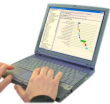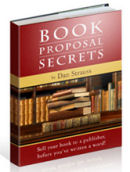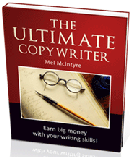|
What Will Your Character Do When Disaster
Strikes?
By Carolyn Kaufman
Most people have seen the character worksheets that encourage
writers to identify everything from shoe size and favorite food
to sexual turn ons and turn offs. And while knowing your
character's most treasured possession might come in handy, it
won't tell you how your character will react when disaster
strikes.
For that, you really need to have a handle on your character's
personality, especially the five to ten "central traits" that
drive her behavior. To help you out, this article takes a
3-step approach to getting to know and working with your
character's most important traits.
Step One: Make a List of
Your Character's Qualities
Grab a pen and make a list of qualities that describe your
character. Write down as many as you can think of, being sure
to list personality traits (e.g. moody, prankish, logical,
observant) and not physical characteristics like eye or hair
color. You can also download a big list of personality traits
(PDF) and check off the ones that fit your character best.
When you're done, you'll probably have a lot more than five or
ten qualities, so you'll need to narrow things down. One trick
is to collapse qualities that are similar into categories. For
example, if you noted that your character has a great sense of
humor, is a bit of a prankster, and likes to get into trouble,
you could collapse all of those qualities into a word like
"mischievous." If your character is hotheaded, emotional, and
cries easily, you could say she's "moody."
Regardless of how you do it, work your list down to the ten
traits that are most important to making your character who she
is. If you're feeling brave, rank order the list; doing so will
help you with Step 3.
Step Two: Subjective
Assessments
As in real life, personality characteristics are filtered
through people's impressions. To get a better sense of how your
character sees herself and how that might differ from how
others see her, use your list of ten key traits to answer the
questions below.
Which of the top ten traits does your character value most?
Why?
How does your character want other people to see her?
How do people who dislike your character see her? (Hint: They
probably have a negative take on qualities your character sees
as positive. For example, if your character is spontaneous, her
enemies might see her as impulsive or reckless. If she is
outgoing, her enemies might see her as obnoxious.)
Which of the traits has your character worked the hardest to
develop? For example, if being strong is important to your
character, what has she done to foster that trait? (The answer,
or course, is going to depend on her definition of strong. If
being physically strong is important, then perhaps she's taken
up weight lifting, but if being emotionally strong is her goal,
maybe she's done therapy.)
Which of these traits does your character use to deal with
everyday problems? For example, if she gets stopped for
speeding, does she try to strike up a conversation with the
officer? Is she deferential? Apologetic? Argumentative?
Step Three: Disaster
Strikes
Now that you have a pretty good feel for your character's
personality, imagine disaster striking. The best kind of
disaster for a story, of course, is one your character is not
equipped to handle.
Regardless of what the disaster is, most people's stress
reactions are stronger versions of the way they deal with other
things. It's like, under pressure, the personality defaults to
whichever traits are strongest. So your character will default
to his strongest central trait, or jump back and forth between
two or three in his attempts to deal with what has
happened.
So let's say that one of your character's ten main traits is
"intelligent." And let's say normally the way she handles
problems is to reason her way through them. If she's faced with
disaster, she's going to try so hard to make sense of it that
she's likely to eschew emotion completely. Or let's say your
character is "hot-headed." If he normally gets angry when
things go wrong, he's going to go ballistic when disaster
strikes. Whatever makes your character unique is what's going
to characterize his feelings and reaction following the
disaster.
You may want to create a list of central traits for each of
your main characters. Referring back to them will help you keep
everyone's reactions straight when disaster
strikes!
Download in PDF
Back to
Top
Dr. Carolyn Kaufman is a clinical psychologist who teaches at
Columbus State Community College in Columbus, Ohio. A published
writer, she recently launched Archetype Writing: Psychology for
Fiction Writers ( http://www.archetypewriting.com). Visitors
will find not only articles about psychology tailored to their
needs, but they can ask Dr. K their writing/psychology
questions. She also blogs at
[http://querytracker.blogspot.com]http://querytracker.blogspot.com.
She is often quoted by the media as an expert
resource.
Source: Ezine Articles
| 



![]()





